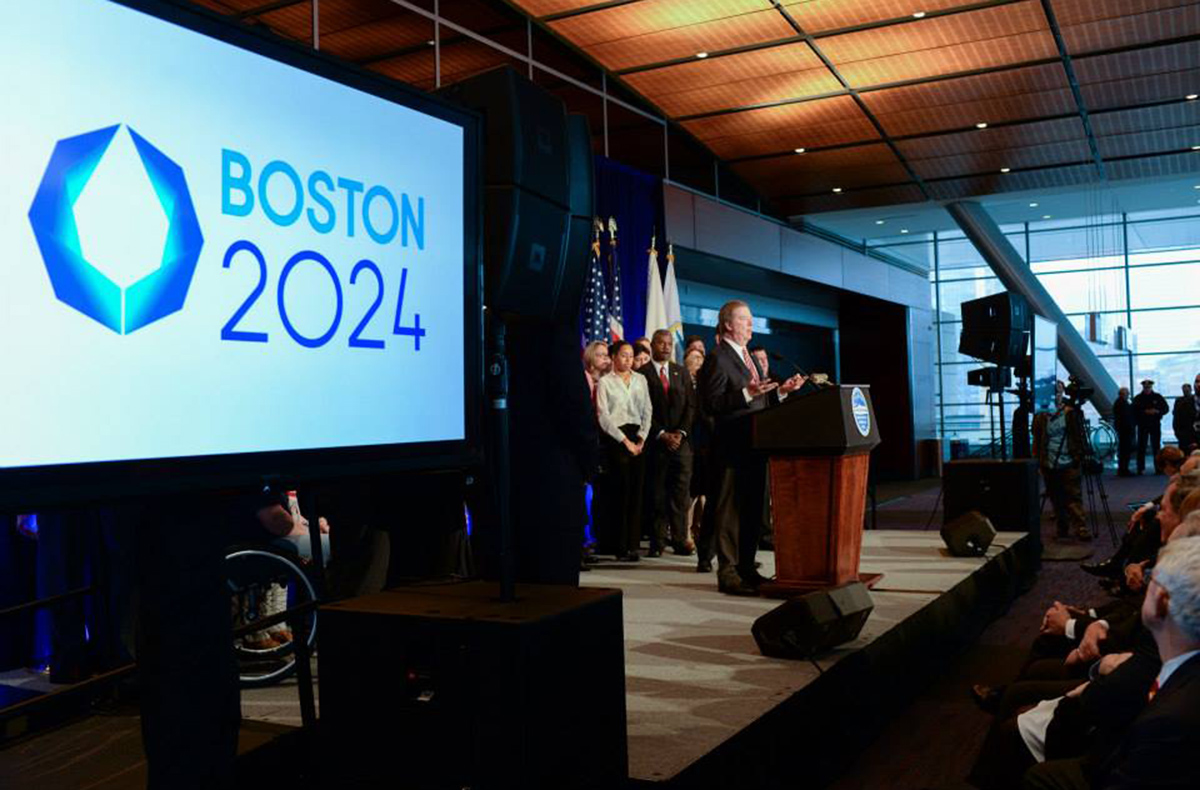Support Grows for Group ‘No Boston Olympics’
They don’t consider themselves naysayers or cynics, or even people who think that Boston is incapable of hosting the 2024 Summer Olympics. But they do believe that bringing a three-week celebration to the area that will attract millions of visitors from around the globe shouldn’t be a top priority for elected officials in Massachusetts.
And on Wednesday, January 14, they will convey that message during a public hearing with their supporters.
In the days following the United States Olympic Committee’s announcement that Boston won the bid to represent the U.S. in its quest to host the 2024 games, “No Boston Olympics” organizers saw a significant “bump” in interest for their cause.
“We are hearing from a lot of people who weren’t convinced that the bid would ever get to this point,” said Chris Dempsey, founder of the group that’s opposed to hosting the games. “And now they’re waking up and saying, ‘wait a minute, how are we at a point that we’re in the seventh inning of this thing, and there hasn’t been any public input?’”
Dempsey said because the Boston bid news is now a topic of discussion nationally, and it’s receiving attention on network programs like NBC Nightly News and the CBS evening news, No Boston Olympics’ digital footprint has increased significantly, and local interest in talking about the bid has made gains.
Dempsey wasn’t forthcoming about how many people signed up to attend Wednesday night’s public discussion about the 2024 Olympic bid—he’s “keeping it quiet for the moment”—but he did say that it will be well-attended, and will feature Smith College Professor Andrew Zimbalist, an expert in economics and author of Circus Maximus: The Economic Gamble Behind Hosting the Olympics and the World Cup.
“He’s very much an academic. He’s a tenured professor and his job as a trained economist is to investigate [issues about the Olympics],” said Dempsey of the group’s special guest speaker. “He digs beyond the rhetoric to look at what the numbers say. He’s very cautious about governments and cities seeking the Olympics.”
Besides editorials he’s written for the Globe, where he said Boston 2024, the organizing group that pushed for the bid, should pay for the costs to cover the games, Zimbalist has gone on record saying there’s “no evidence that the games boost tourism, and the costly new facilities turn into white elephants.”
“There is always great hype about hosting the Olympics. City and business leaders anticipate exposure, leading to increases in tourism, trade, and investment. With a few exceptions, these buoyant expectations are not realized,” Zimbalist wrote in a recent editorial for the Wall Street Journal.
Dempsey said he thinks supporters of No Boston Olympics who attend Wednesday’s hearing will find Zimbalist’s thoughts “informative and helpful.”
“He has done a tremendous amount of work on this issue,” he said.
While No Boston Olympics is ahead of the city in terms of hosting a public hearing on the subject, Boston officials are also gearing up to talk with constituents about the pros and cons of welcoming the international sporting event, and what the process is from here on out.
Last week, Mayor Marty Walsh said the first of nine public meetings on the Boston 2024 effort will be held on January 27, at 6:30 p.m. at Suffolk Law School.
If Boston continues in its success and beats out the international cities vying for a chance to host the Summer games, the USOC and the city will be locked into a nine-year partnership to shape their plan.



